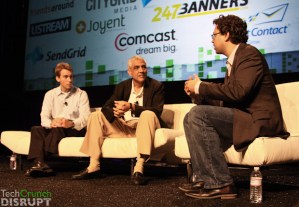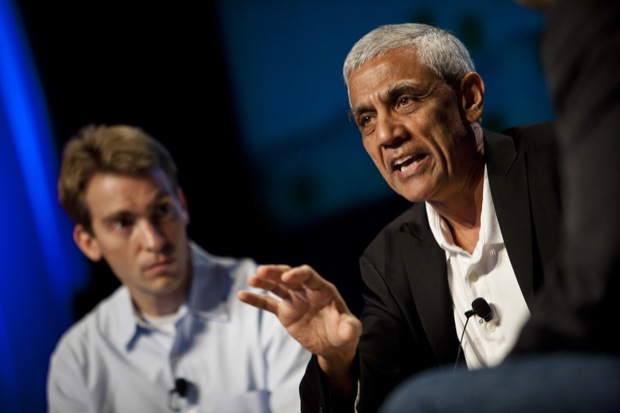
“Environmentalists get in the way…and do more damage than they know,” said Vinod Khosla, one of the world’s leading clean tech investors, today at the TechCrunch Disrupt conference in San Francisco. Why? Self-described environmentalists demand or adopt technology that sounds promising without a sense of its true cost or impact to the environment. “Painting your roof white is better for the environment than driving a Prius or similar vehicle,” Khosla pointed out.
The green movement contrarian famously invested in a business that aims to make coal power cleaner (Calera) with carbon sequestration. The very notion displeases environmentalists who are concerned about the way coal is mined, as well as emissions from coal-burning plants.
Today, Khosla Ventures joined Sigma Partners investing a $13.7 million round in PVTSolar, a company that puts a new spin on solar power generation for home and light commercial use. PVT’s Echo system supplements typical photovoltaic solar panels with technology that captures the heat they generate to supply additional power.
Earlier in the week, a Khosla Ventures portfolio company Amyris — makers of non-petroleum fuels and chemicals — raised $85 million through an initial public offering (according to Fortune).
Khosla noted that Amyris came to him wanting to produce anti-malarial drugs. Six months later, after “playing around” with the company’s biotechnology, they were producing jet fuels. His fund made a $15.59 million investment in the business that’s now worth about $65.36 million.
The amounts of venture capital invested by Khosla may sound high to the uninitiated. But relative to clean tech deals struck by other funds, Khosla said his were 20% lower: “Our median series A investment is around $3 million. I don’t care what other VCs are doing. I’m telling you the facts of our business. The way we practice venture capital, we help entrepreneurs experiment with technology, take their crazy ideas, their best ideas, and then create a position where capital to get started becomes irrelevant.”
Joining Khosla on stage was General Electric’s Kevin Skillern, who heads up GE’s venture capital investments in clean energy. Skillern told TechCrunch immediately following the talk that GE is focused as much on creating and commercializing new technology, as it is on making installed, legacy systems more efficient. GE equipment produces 1/3 of the world’s power, and much of what’s already installed will be operating for more than another 10 years, he noted.
In contrast to Khosla, he believes that some clean tech startups — like those seeking large utilities as customers, and those who want to gain scale as quickly as possible to take advantage of government subsidies — simply do require more capital than startups in other sectors, like consumer web and entertainment, to get started. Khosla made the case that clean tech firms don’t have to be capital intensive compared to other tech startups.
Khosla Ventures invests in companies whose well-being is not dependent on government subsidies over time. “Subsidies can help technologies get started. But I don’t invest in anything that can’t achieve market competitiveness in five years. You should be able to achieve the price for a good that will sell in India or China without a subsidy in that time.”
Skillern and Khosla both called on Silicon Valley and corporate venture capitalists to think less about what Khosla called “nice features,” and more about truly disruptive businesses that will solve the world’s problems.
